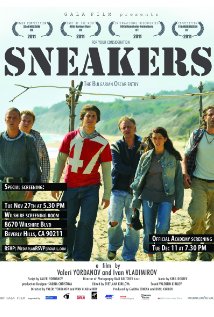Related Research Articles

27th Volhynian Infantry Division was a World War II Polish Home Army formed in the Volhynia region in 1944. It was created on January 15, 1944, from smaller partisan self-defence units during the Volhynia massacre and was patterned after the prewar Polish 27th Infantry Division.

Pomorzany is a municipal neighbourhood of the city of Szczecin, Poland situated on the left bank of Oder river, south of the Szczecin Old Town. It borders Gumieńce to the west, Turzyn to the northwest, Nowe Miasto to the north, Międzyodrze-Wyspa Pucka to the east, and Gmina Kołbaskowo to the south. As of January 2011 it had a population of 21,957.

Andrzej Romocki, codename "Morro" (16 April 1923 - 15 September 1944, was a Polish Scoutmaster who attained the rank of captain in the Armia Krajowa during World War II. Romocki was active in the Szare Szeregi organisation from 1940 onwards and during the Warsaw Uprising he was the commander of the Rudy Company of the AK Zośka Battalion. He took command of the whole battalion on 31 August 1944 until his death in the Czerniaków district on 15 September. It's possible that he was killed as a result of "friendly fire" by soldiers of the Ludowe Wojsko Polskie.

In Poland, the resistance movement during World War II was led by the Home Army. The Polish resistance is notable among others for disrupting German supply lines to the Eastern Front, and providing intelligence reports to the British intelligence agencies. It was a part of the Polish Underground State.

The "cursed soldiers" or "indomitable soldiers" were a heterogeneous array of anti-Soviet-imperialist and anti-communist Polish resistance movements formed in the later stages of World War II and in its aftermath by members of the Polish Underground State. The above terms, introduced in the early 1990s, reflect the stance of many of the diehard soldiers.

Stanislav Iosifovich Rostotsky was a Soviet film director, screenwriter and pedagogue. He was named People's Artist of the USSR in 1974.

Krystyna Jolanta Janda is a Polish film and theatre actress, director, and singer. She is best known internationally for playing leading roles in several films by Polish film director Andrzej Wajda, including Man of Marble and Man of Iron. She is widely considered one of the most popular and successful Polish actresses of her generation and an icon of Polish cinema.
Unvanquished City is a 1950 Polish drama film directed by Jerzy Zarzycki. It was entered into the 1951 Cannes Film Festival.

The Gdynia Film Festival is an annual film festival first held in Gdańsk (1974–1986), now held in Gdynia, Poland.

Me Ivan, You Abraham is a 1993 French-Belarusian film written and directed by Yolande Zauberman. It won the Award of the Youth at the 1993 Cannes Film Festival and the Golden St. George at the 18th Moscow International Film Festival; and was Belarus' submission for consideration for Best Foreign Film at the 67th Academy Awards. The film was also shown in 1993 at the 9th Warsaw International Film Festival and at the 10th Jerusalem Film Festival.
Copernicus is a 1973 Polish historical film directed by Ewa Petelska and Czesław Petelski. The film was entered into the 8th Moscow International Film Festival where it won the Silver Prize. It was also selected as the Polish entry for the Best Foreign Language Film at the 46th Academy Awards, but was not accepted as a nominee.

Sneakers is a 2011 Bulgarian adventure film directed by Valeri Yordanov. The film won a Special Mention at the 2011 Moscow International Film Festival. It was also selected as the Bulgarian entry for the Best Foreign Language Oscar at the 85th Academy Awards, but it didn't make the final shortlist.

Alexander Borisovich Belyavsky was a Soviet/Russian actor who appeared in more than one hundred films. Belyavsky was also the first presenter of the popular TV Show The 13 Chairs Tavern. In 1988 he was designated a Meritorious Artist of Russia; in 2003, he was named a People's Artist of Russia.
Tonight a City Will Die is a 1961 Polish drama film directed by Jan Rybkowski which presents the tragedy of Dresden during bombings between 13 and 14 February 1945, as seen through the eyes of Polish forced laborers. It was entered into the 2nd Moscow International Film Festival where Boguslaw Lambach won the Silver Prize for Director of Photography.

Jan Izydor Rybkowski was a Polish film director. He directed 30 films between 1949 and 1984. His 1961 film Tonight a City Will Die was entered into the 2nd Moscow International Film Festival. Two years later, he was a member of the jury at the 3rd Moscow International Film Festival.

Clear Skies is a 1961 Soviet war romance film directed by Grigori Chukhrai. It won the Grand Prix at the 2nd Moscow International Film Festival.

Jan Łomnicki was a Polish film director and screenwriter. A graduate of the National Film School in Łódź. He directed more than thirty films between 1954 and 2000. His 1976 film To Save the City was awarded at the Polish Film Festival (1976) and was entered into the 10th Moscow International Film Festival (1977).

Freedom Square in Bydgoszcz is located in Bydgoszcz, Poland, in downtown area, between Gdańska Street and the park Casimir the Great.

Warsaw 44 is a 2014 Polish war film written and directed by Jan Komasa. The film depicts the Warsaw Uprising in 1944 during the German occupation of Poland.

Sebastian Fabijański is a Polish actor and rapper.
References
- ↑ "Ocalić miasto". Film Polski. Retrieved 30 September 2016.
- ↑ "10th Moscow International Film Festival (1977)". MIFF. Retrieved 30 September 2016.